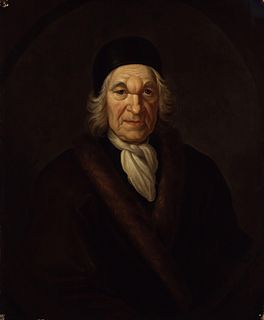A Quote by William Carlos Williams
When a man makes a poem, makes it, mind you, he takes words as he finds them interrelated about him and composes them - without distortion which would mar their exact significances - into an intense expression of his perceptions and ardors that they may constitute a revelation in the speech that he uses. It isn't what he says that counts as a work of art, it's what he makes, with such intensity of perception that it lives with an intrinsic movement of its own to verify its authenticity.
Related Quotes
There is a note that comes into the human voice by which you may know real weariness. It comes when one has been trying with all his heart and soul to think his way along some difficult road of thought. Of a sudden he finds himself unable to go on. Something within him stops. A tiny explosion takes place. He bursts into words and talks, perhaps foolishly. Little side currents of his nature he didn't know were there run out and get themselves expressed. It is at such times that a man boasts, uses big words, makes a fool of himself in general.
My conception of the audience is of a public each member of which is carrying about with him what he thinks is an anxiety, or a hope, or a preoccupation which is his alone and isolates him from mankind and in this respect at least the function of a play is to reveal him to himself so that he may touch others by virtue of the revelation of his mutuality with them. If only for this reason I regard the theater as a serious business, one that makes or should make man more human, which is to say, less alone.
What makes a free thinker is not his beliefs, but the way in which he holds them. If he holds them because his elders told him they were true when he was young, or if he holds them because if he did not he would be unhappy, his thought is not free; but if he holds them because, after careful thought, he finds a balance in their favor, then his thought is free, however odd his conclusions may seem.
For not by art does the poet sing, but by power divine. Had he learned by rules of art, he would have known how to speak not of one theme only, but of all; and therefore God takes away the minds of poets, and uses them as his ministers, as he also uses diviners and holy prophets, in order that we who hear them may know them to be speaking not of themselves who utter these priceless words in a state of unconsciousness, but that God himself is the speaker, and that through them he is conversing with us.
The great artist when he comes, uses everything that has been discovered or known about his art up to that point, being able to accept or reject in a time so short it seems that the knowledge was born with him, rather than that he takes instantly what it takes the ordinary man a lifetime to know, and then the great artist goes beyond what has been done or known and makes something of his own.
I was demanding of myself a deeper and greater honesty, more and more revelation in my work in order to give it back to the people where it goes into their lives and nourishes them and changes their direction and makes light bulbs go off in their head and makes them feel. And it isn't vague, it strikes against the very nerves of their life and in order to do that you have to strike against the very nerves of your own.
He is the richest man who enriches his country most; in whom the people feel richest and proudest; who gives himself with his money; who opens the doors of opportunity widest to those about him; who is ears to the deaf; eyes to the blind, and feet to the lame. Such a man makes every acre of land in his community worth more, and makes richer every man who lives near him.







































